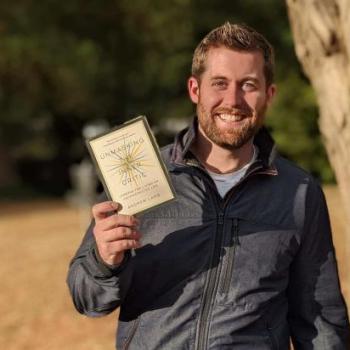
No matter who you are or where you’ve been, each of us at some point experience moments when we find ourselves holding onto beliefs, commitments, or experiences that no longer serve who we are becoming.
This clinging can hinder our ability to fully embrace the future and live as authentic, whole individuals – not to mention, it can keep us committing ourselves to sunk costs, rather than living into a healthier way of being and seeing the world around us. It is often our inner critic – no matter what voice it takes on – that keeps us attached to the status quo and holding onto what is comfortable.
The Inner Critic and Sunk Costs
The inner critic, which speaks to each of us in unique ways and sometimes without a voice at all, often feeds into our desire to make things work at any cost. After all, the inner critic’s job is to protect us. If you’re familiar with Internal Family Systems, you might think of the inner critic as an amalgamation of our protector parts; it is the mechanism by which different parts of us attempt to ensure survival.
In terms of sticking with sunk costs, our inner critic may work to convince us that if we just invest more time, energy, or resources, things will change for the better (or at least not get any worse). This pattern can show up in a myriad of different ways, but is almost always rooted in a desire for survival. We stay in unhealthy relationships because “it could get better.” We remain in church that teach abusive and harmful things because “I can change it.” We continue our dedication to political causes and professions because “well, we’ve come this far…”
The inner critic works hard to keep us safe-enough and running on autopilot.
Relentless Hope and the Path to Wholeness
Dr. Martha Stark describes one aspect of this phenomenon as “relentless hope,” where we avoid confronting our grief or the truth of our situation.
Instead of seeing the lack of health or problem, we double down on our dreams or desires for a positive outcome, even if doing so amplifies our pain. This relentless hope often masks our inherent dignity, leaving us trapped in unfulfilling and sometimes deeply harmful circumstances.
As people existing within faith traditions (or coming out of them), walking in a healed way requires us to recognize it is perfectly acceptable to shift our investments elsewhere.
We have the freedom to cut ties, whether it be with specific religious institutions or leaders, outdated belief systems, or even long-held roles within our faith community. Changing our minds and making decisions that align with our evolving values is a natural part of our spiritual, personal, emotional, and mental deepening.
Releasing Sunk Costs and Embracing Authenticity
By taking a compassionate and honest look at our inner critic and our sunk costs, we can acknowledge them for what they are.
This is a practice of seeing ourselves with soft eyes, moving beyond the nostalgic grip of past dreams and “taking a long, loving look at the Real,” as Richard Rohr likes to say. Seeing sunk costs for what they are and then letting go of the relentless hope that often comes with them opens up space for us to live in alignment with what is genuinely real and meaningful to us.
It is through this process of release that we can embark on a path of liberation and growth.
Want practical inner work teachings and resources every week?
Join 471+ folks receiving The Wednesday 1-2-3, my weekly email offering one contemplative and embodied teaching, two questions for your inner work, and three resources to go deeper.













